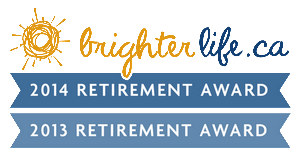It's never too late to rekindle your sense of belief and wonder in something greater. Life can be challenging, and sometimes, we lose faith in the face of adversity or the passage of time. However, I want to encourage you to embrace the beauty of believing in something, whatever that may be.
Belief is not limited to any particular faith or ideology; it's about finding a source of inspiration and solace that resonates with you. Often, life throws us unexpected tragedies, and it can be difficult to reconcile these hardships with our beliefs. But remember, doubt is a natural part of the human experience, and it's okay to question. What's essential is that you don't lose the desire to believe.
There are countless belief systems and religions out there, each offering a unique perspective on life's mysteries. Don't let anyone dictate your beliefs; it's a personal journey of discovery. It might be uncomfortable to delve into this topic, but it's a path to self-discovery and inner peace.
Start by asking yourself some fundamental questions. Do you believe in a higher power? Are you drawn to the wisdom in religious texts like the Bible, or do you find resonance in the teachings of Buddhism or the reverence for nature? What are your existing beliefs, if any? Contemplate how these beliefs shape your sense of right and wrong.
It's worth noting that societies often derive their moral and ethical frameworks from religious or philosophical foundations. In America, Christianity has influenced the creation of laws and values, while other parts of the world have different cultural and religious perspectives on morality.
Believing in something gives you a sense of purpose and provides boundaries for your actions. It's a comforting presence in your life, offering guidance and a moral compass. If you're seeking structure and ethical guidance, then belief can be a powerful ally.
Once you've reflected on your core values and beliefs, embark on a journey of exploration. Research and study different belief systems and religions, seeking knowledge to comfort your soul and answer your questions. Knowledge is a powerful source of strength.
Learning about various belief systems not only broadens your horizons but also helps you understand yourself better. It empowers you to make informed decisions about what truly resonates with your heart and soul. By gaining insight into the diverse cultures and philosophies that underpin different faiths, you'll find clarity and purpose.
Remember, travelling the world and experiencing various cultures can be an eye-opening way to deepen your understanding of different belief systems. It allows you to see how people integrate their beliefs into their daily lives, and this firsthand experience can be transformative.
In your quest to find belief and purpose, take your time. It's a personal journey, and there's no rush. Many people turn to religion or belief systems as a source of structure and meaning. As you explore, you may discover the path that resonates with you the most.
Belief can breathe new life into your spirit, offering hope, guidance, and a profound sense of wonder. Embrace the journey of rediscovery, and you'll find that belief has the power to enrich your life in ways you never imagined.

